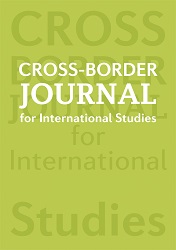The Republic of Moldova between the Signed European Union’ Free Trade Agreement and the Customs Union of Russia, Kazakhstan and Belarus. Challenges and Perspectives
The Republic of Moldova between the Signed European Union’ Free Trade Agreement and the Customs Union of Russia, Kazakhstan and Belarus. Challenges and Perspectives
Author(s): Andreea-Loredana TudorSubject(s): Politics / Political Sciences, Law, Constitution, Jurisprudence, Geography, Regional studies
Published by: Editura “Tritonic Books” Bucuresti
Keywords: Foreign policy; free trade; political membership; trade agreement; trade barriers
Summary/Abstract: The Republic of Moldova, as a sovereign, independent and democratic state, imposed on itself a course of progressive adherence to the European Union. The profound transformations, dictated by the new geopolitical realities in the region, as well as the new requirements and exigencies imposed by the imperative of economic prosperity and political security, allowed the Republic of Moldova to establish priorities and to conclude treaties and international agreements. Can it be said that the new stage that will occur as imperative of the Republic of Moldova's integration into the EU will have consequences on the domestic policy given its ongoing commercial economic relations with the Russian Federation? Can the Free Trade Agreement between the Republic of Moldova and the EU, signed on June 27th, 2014, to represent the beginning of new commercial relations with member states of the European community? Two levels of analysis need to be taken into account: on the one hand the opening of new markets for Moldovan products and on the other hand, counteracting the impact of high-quality products on third markets against trade barriers imposed by the Custom Union of Russia, Kazakhstan and Belarus, following the non-adherence to this free trade area. Can this agreement also be analyzed as being the key to diplomatic success regarding the visa-liberalization regime, in maintaining the international community's support for a favorable settlement of the Transnistrian problem, as well as for the determination of the Russian Federation to withdraw its troops from the territory of the Republic of Moldova?
Journal: Cross Border Journal for International Studies
- Issue Year: 2/2017
- Issue No: 1
- Page Range: 103-115
- Page Count: 13
- Language: English

